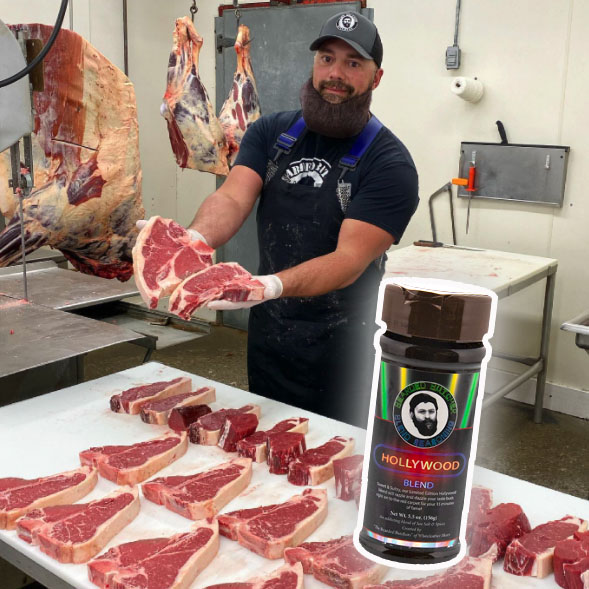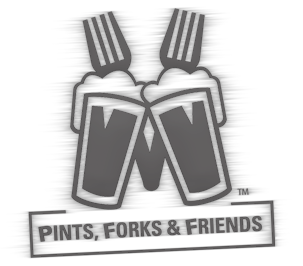Abbaye Notre Dame D’Orval – Orval Brewery
Abbaye Notre Dame D’Orval, Orval Brewery is located in the southern Belgium province of Luxembourg, and is one of Belgium’s six Trappist beer producers. Currently, there are only ten monasteries – six in Belgium, two in the Netherlands, one in Austria, and one in the United States – that brew beer and sell it as “Authentic Trappist Product.” What does this mean? A few things:
- They are produced within the walls of the monastery
- The monastic community determines the policies and provides the means of production
- The profits are primarily intended to provide for the needs of the community or for social services. Look for this logo on the label of the bottle.
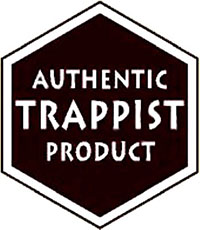
I think these are all pretty interesting facts about what makes a “Trappist” beer. I especially enjoy the fact that these monasteries are doing something good with the profits from their beers sales, and helping out their community. I see this idea continuing today in the American craft beer scene, and I think this is a wonderful thing. There is plenty of money to make a living, and give back to the community where you make that living.

The name “Trappist” originates from the La Trappe abbey located close to the village of Soligny in Normandy, France, where this reform movement of the Cistercian Order of the Strict Observance was founded in 1664. Trappist beer is not a style, but there are some common characteristics that almost all Trappist beers share. They are all top fermented. They are all unpasteurized. They contain no chemical additives. They add sugar to the wort in the kettle, and they are bottle conditioned. Basically, these guys are serious about how how they live and what they do. No messing around. Although all this information would lead you to believe Trappist beers have been around for a long time, Trappist beers as they are now produced have only existed since the early 1930s, when Orval and Westmalle developed their first commercially available beers.

The Abbaye Notre Dame D’Orval gets its game from a legend in which the widowed countess Mathilda of Tuscany accidentally dropped her wedding ring into a spring on the site of the future abbey and assumed it was lost. She prayed to God for the return of her ring, promising to build a great abbey if she should see the ring again. Within moments a trout swam to the surface with the ring in its mouth. She is said to have exclaimed “This place truly is a ‘val d’or,'” meaning “golden valley,” and established a church on the site known as Orval. The trout with the ring in its mouth remains the symbol of the abbey. Now, is this story true? Who knows, but I like it, and I’m betting you do too. Beer drinkers like a story to go with their beer, and this one is as good as any.

The abbey has suffered many set backs, including: a major fire in 1252 and burning and looting during the French Revolution in 1793. Slowly, it was rebuilt, and in 1931, a brewhouse was installed to help finance the rebuilding process. Although a brewery was probably always present in the abbey, it wasn’t until the 1930s that Orval distinguished itself as a brewery.
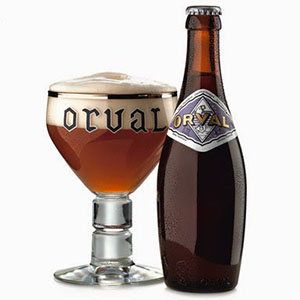
Orval Brewery makes only two beers, and only one makes it out of the monastery, the beer simply named “Orval.” The beer comes in at 6.9% ABV, but with a unique taste due mainly to the yeast strains used, and the dry-hopping with fresh Hallertau, Styrian Goldings, and French Strisselspalt hops. Unlike other Trappist beers, this honey-colored pale ale is partially carbonated, then bottled with a small dose of priming sugar and a blend of yeast, including the “wild” yeast strain Brettanomyces, which gives it a phenolic, estery character. This flavor is often described as “horse blankets,” and becomes more apparent after 6 months. So, this beer is hoppy and fresh when young, and becomes much more complex as it ages in the bottle. I have one in my refrigerator that was bottled on November 28, 2013, and says it is best by November 28, 2018. I’ll go out on a limb and say I don’t think this particular bottle will be around that long!
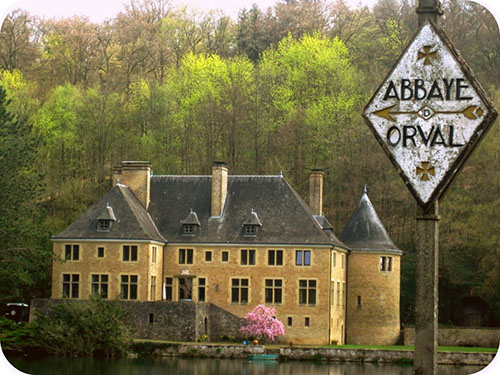
Cheers!
George Horning
Orval, n° 2,
B-6823 Villers-devant-Orval
Tel: +32 61 311 261
[email protected]
www.orval.be/en/

